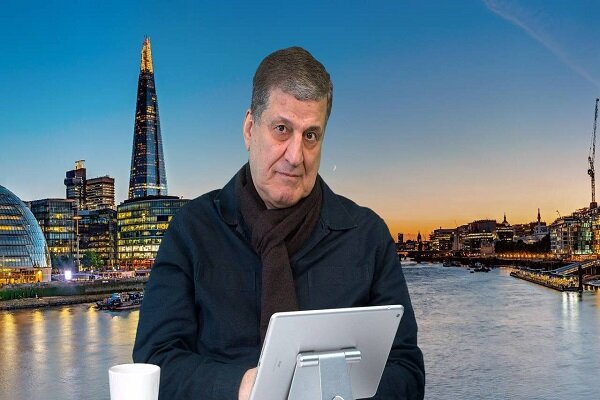Jolani’s trial in France: International justice, an opportunity to restore the dignity of Syrians.
Iraqi analyst and political activist Najah Muhammad Ali has sent a special note titled “Jolani Trial in France; International Justice, an Opportunity to Restore the Dignity of Syrians” to Mehr News Agency International Group, the full text of which follows:
At a defining moment in the course of the Syrian crisis, the legal complaint filed by human rights organizations against Abu Muhammad al-Jolani in French courts, on charges of genocide and war crimes, opens an important window for Syrians and the international community: a window towards the international justice they have long awaited. Although this path has begun late, it reflects the voices of the victims and emphasizes the fact that impunity is no longer a certain fate, even in the most complex conflicts.
In this context, this legal action can be appreciated as a necessary step towards building comprehensive justice that includes all Syrian war criminals without exception or selectivity, including civil opponents of the former Syrian political regime.
1. Golani, accused of genocide; what does this trial mean?
Golani was not only a controversial figure in the Syrian war, but also a symbol of an armed project that turned the slogans of the revolution into a tool for killing and sectarian cleansing, especially in the Syrian coast and in areas known as “minorities,” even though they are also Syrian citizens.
A bloody and documented record: Human rights organizations, including those affiliated with the Syria for All party led by Muhammad Izzat Khattab, have documented horrific crimes committed by groups under Golani’s command. These crimes have included religiously motivated killings, summary executions, and the forced displacement of civilians from religious minorities.
The necessity of international justice: When local justice is absent or disrupted by political polarization, international justice becomes a moral and political imperative. The trial of Golani, although belated, is a step in the right direction.
2. Syria for All: A Vision of Justice Beyond Revenge
In our time, the need for a project called “Syria for All” is felt more than ever; a project that calls for the prosecution of all perpetrators of crimes against the Syrian people. At the same time, it opposes any dubious foreign financing and emphasizes the creation of a national economic and social plan based on justice and reconciliation.
Real protection of minorities, not just slogans: The violation of the rights of the Alawite, Christian and Druze minorities must be confronted and the principle of citizenship as the basis of Syrian identity must be respected. This is a path to overcoming the political sectarianism that has been exploited by all parties, from the new regime to foreign armed groups.
A national program for reconstruction: Syria needs a development-oriented program that prioritizes the affected and deprived areas and is based on transparency and accountability, not political pariahs.
3. The French Trial: Justice or Political Instrument?
The French judicial path is indeed important, but it is important to consider its context:
Why now? The timing of this trial is questionable, especially since the West, including some of its security institutions, has at one point supported terrorist and extremist groups. However, this trial could be an attempt to correct past policies.
Selective justice, a threat to stability: If only Golani is tried and the crimes of his regime or other groups are ignored, the Syrian people’s trust in international justice will be undermined. Justice must be comprehensive or not at all.
4. Why should this trial be supported?
Condemnation of Takfiri ideology: This trial shows that Golani’s Takfiri project did not represent the revolution, but rather harmed it and its people.
Accountability, the foundation of reconciliation: Justice is not built on forgetting, but requires accountability. This complaint could pave the way for a national dialogue based on accountability, not justification.
Exposing international complicity: Through the trial process, many details of hidden Western support will be revealed, and this will increase the moral responsibility of the international community in national reconstruction and reconciliation.
5. Syria needs transitional justice, not selective justice
The trial of Golani does not mean exonerating his regime: anyone who commits crimes in the name of the state or the revolution must be held accountable. This is a fundamental principle of justice.
The role of political opponents of the former political system who are now on the margins: These individuals can be a national bridge; through a comprehensive discourse aimed at ending the conflicts, not at reproducing the old system or reviving takfiri projects, but at building a law-based state.
A first step towards greater justice
If the trial of Golani in France is carried out within the legal framework, it will be an initial but important step. This trial emphasizes that crimes are not subject to the statute of limitations and that justice, however late, can be achieved. The remaining challenge is to extend this model to all those who have contributed to the Syrian catastrophe.
In this complex scene, the slogan “Syria for All” is presented as a political and civic project that calls for inclusive justice- justice that does not reproduce sectarianism but rather protects the rights of all Syrians against hegemonic projects of any kind. Because Syria is for all, it has no place for despots or extremists.

